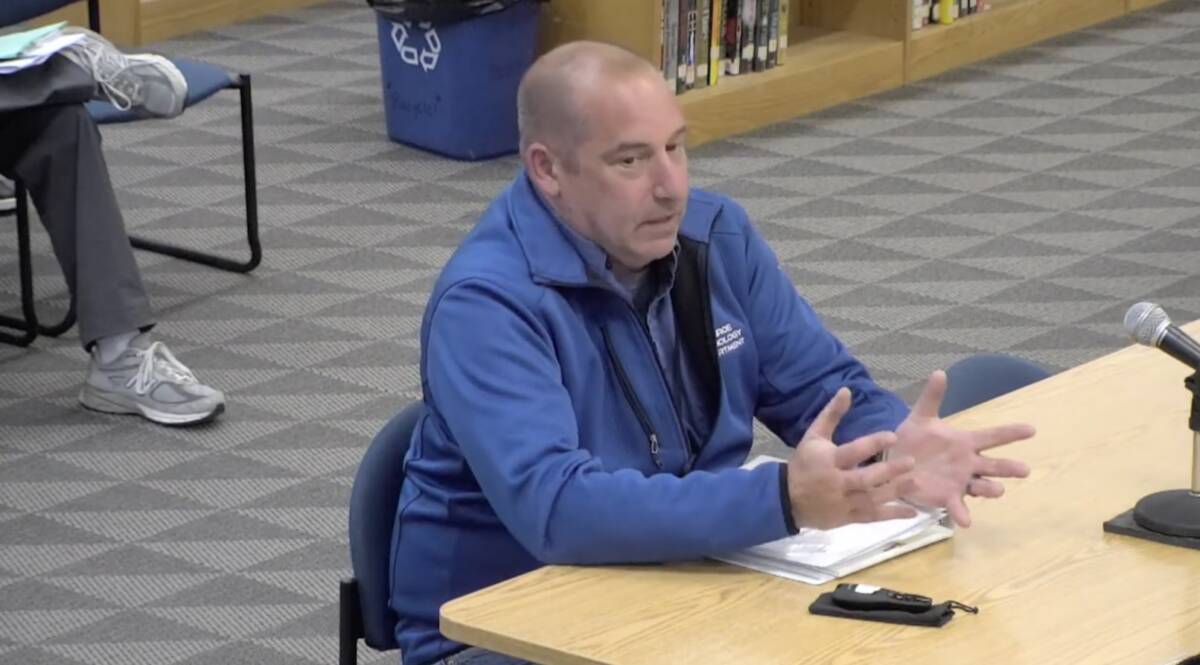MONROE, CT — Technology Director Paul Koorse presented a plan to the school board to issue new Chromebooks to sixth grade classes every year, which students will use until they graduate from Masuk High School.
Board members discussed it at their June 5 meeting and decided to allow administrators to move forward by drafting a policy, which will be reviewed by the Board of Education’s Policy Committee in September before coming before full board.
“One of the big things is, by giving students our district devices, it ensures they’re using a standard technology,” Koorse told board members.
Superintendent of Schools Joseph Kobza said a big reason for the proposal is student safety.
“We can control what they go on,” he said of sites students visit. “It also allows us to have a formal deployment plan with the Chromebooks. This would put us on a schedule every year.”
Students could bring in personal laptops or other devices that have a virus and the district would have no way of knowing about it, according to Koorse, who said the district can take steps to safeguard all of its own devices.
He said there is already money in the budget for the Chromebook purchases. The policy would just change how the devices are used.
The new Chromebook policy would replace the BYOT (Bring Your Own Technology) initiative starting next school year.
Grades seven and eight would get newer Chromebooks (not brand new) the district already has, to be used until they graduate.
Grades nine through 12 would continue to use Chromebooks “with a twist”. If a ninth grader wants a Chromebook, Koorse said it would be assigned and the student could keep it through 12th grade.
“But we are allowing BYOT for those grades,” he said. “It is grandfathered in, so if a ninth or 10th grader got a new device, we’ll allow them to continue to use it until they graduate out.”
Replacement, repairs
Chromebooks and chargers assigned and loaned to students would be accounted for through PowerSchool and the Google Administrator console.
Parents could opt to pay $35 a year for insurance, which covers one full replacement and any non-abuse repair. Money collected would be deposited into the Technology Chromebook Fund (to cover any eligible repairs and, over time, the cost of new Chromebooks). Complete device replacement is $250 and charger replacement is $50.
Koorse said switching to all students using district owned devices will help the district keep track of the technology and to get it back.
A lot of Chromebooks went missing after remote learning during the COVID-19 pandemic, so the district disabled the devices, he recalled. Users got a message to notify their administrator to get the Chromebooks working again, and suddenly the devices were returned, Koorse said.
Principal Steve Swensen said his main concern is each student having their Chromebook for seven years as technology improves and their devices get older. “I think that’s pushing it,” he said.
But Koorse said he believes seven years is not too long, adding alternative options include buying new Chromebooks for more than one grade level at a time, which would be more expensive. He said Google is expanding the lifespan for what Chromebook browsers can support.
Older, returned Chromebooks could be redeployed in lower grades and used for parts, according to the plan.
Dennis Condon, a board member, suggested making parents pay some type of fee for their children to get a Chromebook, so there is “skin in the game” for them to ensure their children use, and take care of, the technology. He said the money could go into a pot of funds for replacements.
Chairman David Ferris said they would already have that with the insurance, though it is optional.
Student engagement
Julia Strong, principal of Jockey Hollow Middle School, said teachers at her school already tell students they cannot use their cellphones in class, even if it has a calculator or another app that could be useful.
“The phones are too distracting. The kids get so off task with the phones in front of them,” Strong said. “That’s why they have to put it aside.”
She said home devices, such as laptops, can cause the same problems because, with a cellular connection students can access sites like TikTok and Discord, which could also distract students around them.
Currently, all devices can use public wifi to access school resources, including printers on the network. But eventually only district owned devices will have that access. BYOT would only get a filtered internet.
Strong spoke in favor of a new Chromebook policy.
“This would allow us to increase student engagement,” she said. “I would like to minimize the number of tabs open when a kid interacts with classmates.”
All respectful comments with the commenter’s first and last name are welcome.










Instead of the taxpayers paying for every students chromebook, why not charge a technology fee per year for the books use. In the community college system, the college owns the chrome books, all studio and science classes have a lab fee. Or use the band instrument purchase concept where the company that supplies the instrument, offers a payment plan for the instrument.
I am totally against schools purchasing chrome books without the students paying for them. Also, why not expand the chrome book purchase program to seniors citizens in the community as well? I doubt people voting on the budget knew that students would get free chromebooks as part of the bloated Board of Education Budget.